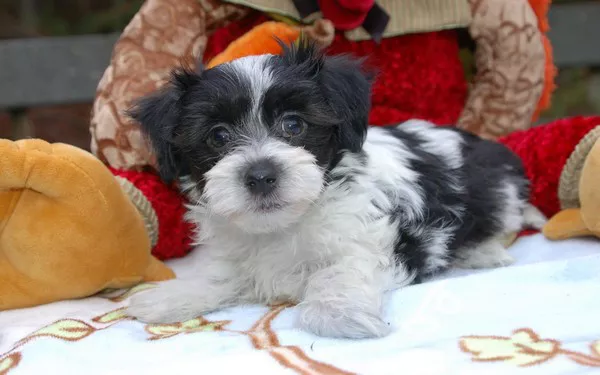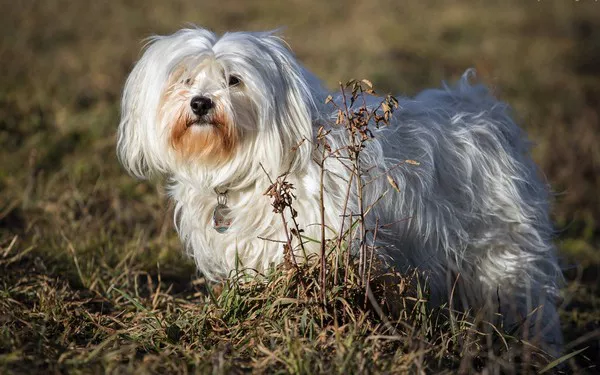Rabbits are delightful small animals known for their gentle nature, curious personalities, and affectionate behavior. While these creatures may seem carefree, they are highly sensitive animals that can experience a range of emotions, including sadness and depression. Recognizing the signs of depression in a rabbit is crucial for maintaining their well-being, as untreated emotional distress can lead to physical health issues and a decline in quality of life.
In this article, we’ll explore the breed characteristics and living habits of rabbits, discuss the common causes of rabbit depression, and provide insight into identifying the symptoms of this condition. Finally, we’ll share strategies to prevent and treat depression in your rabbit, helping ensure a happy and healthy life for your furry companion.
Understanding Rabbit Breeds and Behavior
Common Rabbit Breeds and Their Characteristics
Rabbits come in a wide variety of breeds, each with its own unique temperament and physical characteristics. While breed doesn’t necessarily determine whether a rabbit is more prone to depression, it’s helpful to understand the traits that can influence behavior and emotional well-being.
Some common rabbit breeds include:
Netherland Dwarf: Known for their small size and energetic personality, these rabbits can be quite lively and curious. However, their delicate build makes them more sensitive to stress and environmental changes.
Holland Lop: A popular breed due to their floppy ears and gentle demeanor, Holland Lops are generally sociable and affectionate. However, they can become anxious if left alone for too long or if their routine is disrupted.
Lionhead Rabbit: Recognized by their distinctive “mane” of fur around their head, Lionheads are friendly and curious but can be timid and easily startled.
Flemish Giant: The largest of the domestic rabbit breeds, Flemish Giants are known for their docile and calm nature. They tend to be more laid-back but require space and attention to stay emotionally balanced.
While each breed has its quirks, it’s important to remember that every rabbit is an individual with a unique personality. Emotional states, including depression, are influenced by a combination of genetics, environment, and life experiences.
Natural Rabbit Behavior and Living Habits
To understand when a rabbit might be experiencing depression, it’s important to know what healthy rabbit behavior looks like. Rabbits are naturally social, curious, and active animals. In the wild, they live in groups and spend much of their time foraging, digging, and exploring their surroundings.
Domestic rabbits share many of these same instincts, and they thrive in environments where they can express natural behaviors. A rabbit’s typical daily activities include:
Grazing and Eating: Rabbits are herbivores with a constant need to chew and graze. They spend a significant portion of their day nibbling on hay, vegetables, and other fibrous foods.
Exploring and Playing: Rabbits are naturally curious and enjoy exploring new spaces, digging, and interacting with toys. Playtime and exercise are essential for their physical and mental well-being.
Socializing: While some rabbits are more independent than others, most enjoy the company of fellow rabbits or humans. Rabbits communicate through body language, grooming each other, and seeking physical contact.
Resting and Grooming: Rabbits are crepuscular animals, meaning they are most active during dawn and dusk. During the day, they rest and groom themselves, keeping their fur clean and neat.
Recognizing healthy behaviors is the first step in identifying when something may be wrong with your rabbit’s emotional state. Depression in rabbits can manifest when these natural behaviors are disrupted or significantly altered.
Recognizing Signs of Depression in Rabbits
Behavioral Changes
Depression in rabbits is often marked by noticeable changes in behavior. A rabbit that is typically active, curious, and social may suddenly become withdrawn, lethargic, or uninterested in their usual activities. Some common behavioral signs of depression include:
Lethargy and Reduced Activity: A depressed rabbit may spend most of its time lying down or sitting in one spot, showing little interest in exploring or playing. This is particularly concerning in rabbits that are normally energetic or curious.
Loss of Appetite: Rabbits are typically enthusiastic eaters, and a sudden decline in appetite or refusal to eat is a serious red flag. Depression can lead to a loss of interest in food, which can quickly result in health complications such as gastrointestinal stasis, a potentially life-threatening condition.
Isolation and Withdrawal: Rabbits are social animals that often seek out interaction with their owners or other rabbits. A depressed rabbit may isolate itself, avoiding contact or social interaction. They may refuse to be petted or handled, even if they were previously affectionate.
Lack of Grooming: Rabbits are meticulous groomers, and a decline in grooming behavior is a significant indicator of distress. A rabbit that stops grooming may develop matted fur, dirty ears, or an overall unkempt appearance.
Aggression or Irritability: Some rabbits may react to emotional distress by becoming more aggressive or irritable. If your rabbit suddenly starts biting, lunging, or scratching when approached, it could be a sign of underlying emotional issues.
Physical Symptoms
In addition to behavioral changes, depression can manifest in physical symptoms. These may be subtle at first but can become more pronounced if the depression is left untreated. Physical signs of depression in rabbits include:
Weight Loss: A loss of appetite often leads to weight loss, which can be dangerous for rabbits. Regularly monitoring your rabbit’s weight is essential, as significant weight changes can indicate an underlying emotional or physical problem.
Changes in Posture: A depressed rabbit may adopt a hunched or tense posture, indicating discomfort or emotional distress. They may also avoid stretching out, which is a common sign of relaxation in healthy rabbits.
Changes in Eyes: Depressed rabbits may have dull or lifeless eyes, lacking the alertness and brightness typical of a healthy rabbit. In some cases, they may also develop tear staining or discharge around their eyes.
GI Stasis: Depression can lead to a lack of eating, which in turn can cause gastrointestinal stasis (GI stasis). This condition occurs when the digestive system slows down or stops, leading to a dangerous buildup of gas and bacteria. Signs of GI stasis include a lack of droppings, bloating, and a refusal to eat. GI stasis is a veterinary emergency and requires immediate treatment.
Common Causes of Depression in Rabbits
Lack of Social Interaction
Rabbits are highly social animals that thrive on companionship, whether with other rabbits or their human caregivers. A solitary rabbit, especially one that is used to having a companion, can quickly become lonely and depressed if left alone for extended periods.
If you have a single rabbit, it’s essential to spend ample time interacting with them each day. If your rabbit had a bonded partner that has passed away, they may experience grief and depression due to the loss.
Environmental Stress
A rabbit’s environment plays a significant role in their mental health. Changes in their living situation, such as moving to a new home, rearranging their living space, or introducing new pets, can be highly stressful for rabbits. Environmental stress can lead to feelings of insecurity and depression.
In addition, rabbits need a stimulating environment that allows them to express their natural behaviors. A lack of mental stimulation, toys, or opportunities for exploration can cause boredom, which can eventually lead to depression.
Health Issues
Physical health problems can also contribute to depression in rabbits. If your rabbit is experiencing pain or discomfort due to an illness, injury, or dental issues, they may become withdrawn and depressed. It’s important to regularly monitor your rabbit for any signs of illness and seek veterinary care if you notice changes in their behavior or physical condition.
Lack of Exercise
Rabbits are active animals that require daily exercise to maintain their physical and emotional health. A rabbit confined to a small space for long periods without access to exercise or playtime can become bored, frustrated, and ultimately depressed. Providing your rabbit with ample space to hop, explore, and play is crucial for their well-being.
See Also: Can Rabbits Eat Lawn Grass?
Trauma or Negative Experiences
Rabbits are sensitive to traumatic experiences, such as loud noises, rough handling, or being attacked by a predator. Even minor stressors, like a trip to the vet or a sudden change in routine, can leave a lasting impact on a rabbit’s emotional state. Prolonged exposure to stressful or frightening situations can result in depression.
How to Prevent and Treat Depression in Rabbits
Providing Social Interaction and Companionship
If your rabbit is alone, consider introducing them to a compatible rabbit companion. Bonding two rabbits can take time and patience, but having a friend can greatly improve their emotional well-being. If getting another rabbit is not possible, be sure to spend quality time with your rabbit every day, providing them with affection, playtime, and mental stimulation.
Creating a Stimulating Environment
Ensure that your rabbit’s living space is spacious and enriched with toys, tunnels, and objects that allow them to express their natural behaviors. Rotate toys regularly to keep their environment interesting and offer safe opportunities for digging and chewing. Rabbits love to explore, so providing them with new areas to investigate can prevent boredom and depression.
Encouraging Exercise
Daily exercise is essential for keeping your rabbit physically fit and mentally stimulated. Allow your rabbit time outside of their enclosure to hop, run, and explore. This can be done in a rabbit-proofed room or a secure outdoor space. Regular physical activity helps prevent boredom, reduces stress, and supports overall well-being.
Addressing Health Concerns
If you suspect that your rabbit’s depression may be due to a physical health issue, seek veterinary care as soon as possible. Regular check-ups are essential for catching health problems early and ensuring your rabbit’s comfort. Dental problems, in particular, are common in rabbits and can lead to pain and depression if left untreated.
Reducing Stress and Providing Security
Minimize changes in your rabbit’s environment, and try to maintain a consistent routine to reduce stress. Provide hiding places in their living space where they can retreat and feel safe. If your rabbit has recently experienced a traumatic event, give them time to recover and offer gentle reassurance through soft handling and a calm atmosphere.
Conclusion
Rabbits are complex creatures with rich emotional lives. Recognizing the signs of depression in your rabbit is key to ensuring their emotional and physical well-being. By understanding their breed characteristics, natural behaviors, and environmental needs, you can provide a safe and enriching environment that supports their happiness.
Depression in rabbits can often be prevented or alleviated through proper care, companionship, and mental stimulation. Regular interaction, exercise, and a consistent routine are essential for maintaining a rabbit’s emotional balance. If you notice changes in your rabbit’s behavior, appetite, or physical condition, take action promptly by addressing potential stressors, providing companionship, and seeking veterinary care when necessary.
Related Topics:


























